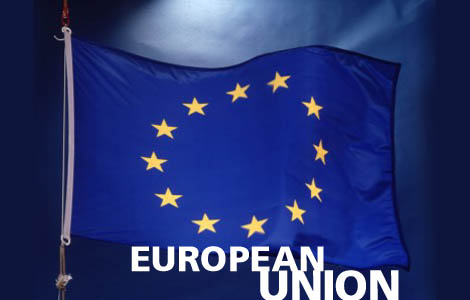Brussels to unveil EU economic recovery plan
 Brussels - The European Union's executive was Wednesday set to unveil an economic recovery plan designed to help the 27-member bloc weather the recession.
Brussels - The European Union's executive was Wednesday set to unveil an economic recovery plan designed to help the 27-member bloc weather the recession.
Officials have said the plan could be worth up to 130 billion euros (170 billion dollars) - or about 1 per cent of the EU's gross domestic product (GDP) - in aid to poor households, as well as investments in infrastructure and in key sectors such as cars, construction and green technologies.
Member states are to be encouraged to boost consumption through cuts in value added tax (VAT) rates, while the European Commission is to ease its strict rules on national budget deficits during 2009 and 2010.
This follows calls from the leaders of France and Germany, who said relaxing the EU's stability and growth pact would help member states cushion the effects of the global financial crisis and of the resulting economic slowdown.
"We are experiencing the worst financial crisis in the last 70 years," French President Nicolas Sarkozy and German Chancellor Angela Merkel wrote in a joint newspaper column for Germany's Frankfurter Allgemeine Zeitung and the French daily Le Figaro.
And given the "exceptional times," countries should not be punished for exceeding the pact's tough fiscal rules, which limit budget deficits to 3 per cent of their GDP, the two leaders said.
The pact's guardian, Economic and Monetary Affairs Commissioner Joaquin Almunia, has cautioned governments against seeking to spend their way out of trouble.
But officials in Brussels quietly acknowledge that countries which exceed the limit during the next two years will likely be let off the hook.
With little new EU money being put on the table, the commission is expected to call for a more efficient use of resources, such as the existing 500-million-euro globalization fund, which is aimed at re-training workers who have lost their jobs to non-EU countries, and the 11-billion-euro European social fund, which is used to boost employment more generally.
Officials in Brussels are also expected to call for a more rapid and effective use of the EU's massive "cohesion" budget, which is designed to bring the standard of living in its poorest areas up to Western levels, and which is set to cost 347 billion euros between 2007 and 2013.
The EU executive will also urge member states to push for more economic reform and modernization in areas from energy efficiency to research and development and waste management - sectors long highlighted as the key to making Europe's economy more competitive.
The decision to give governments a free hand in reducing their VAT rates follows a move by the British government, which on Monday announced that it would next month cut the country's VAT on consumer goods from 17.5 per cent to 15 per cent until the end of 2009.
Current VAT rates on goods and services vary from 25 per cent in Sweden and Denmark to 15 per cent in Cyprus and Luxembourg. Member states can also apply reduced rates on certain products.
Officials were set to insist that any cuts in the standard rate should be temporary and should not bring it below the bloc's minimum level of 15 per cent.
The commission's economic recovery plan, which will need to be approved by EU leaders at a summit taking place in Brussels next month, comes on top of national plans being put in place by individual governments. (dpa)